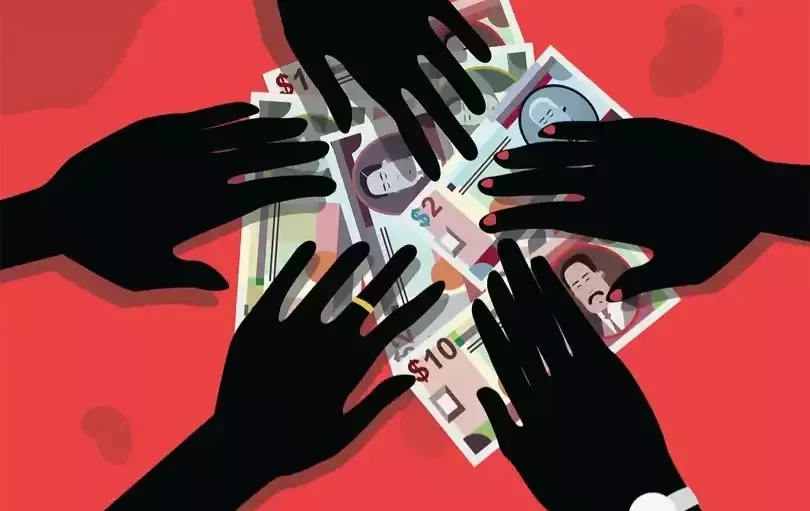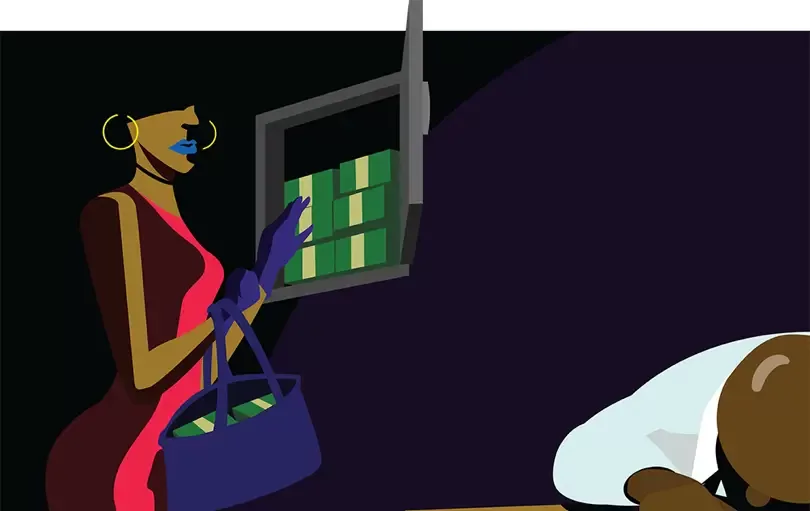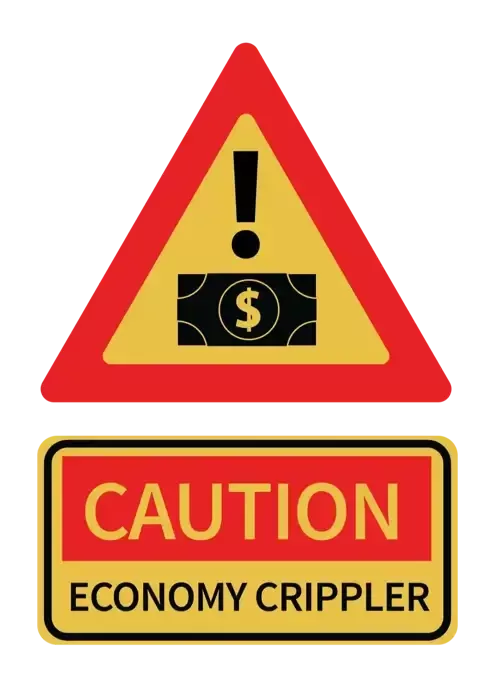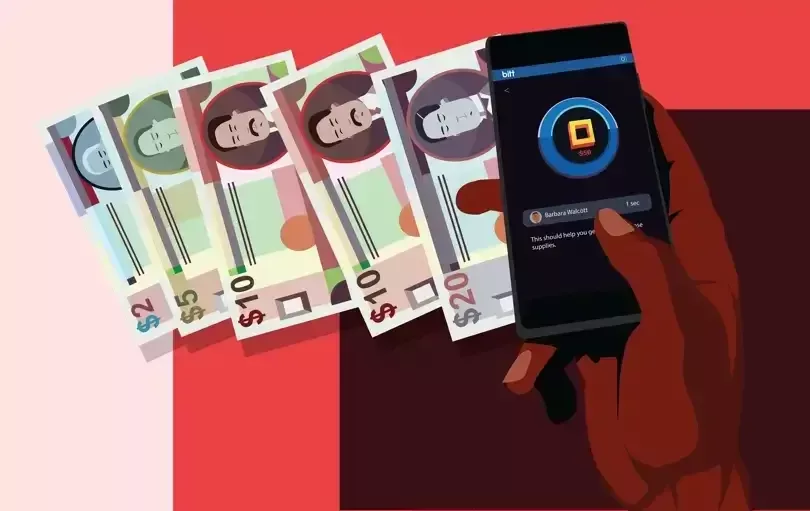Paper Cash Hurts the Economy

You hand over a ten dollar bill for a beef patty and a cup of instant coffee. It’s early morning, you’re running late, and you’re looking forward to a little liquid motivation. The cashier counts back a series of silver coins and you push them into the depths of back-pockets, or the dark recesses of your purse. You smile, repeat pleasantries; they do the same.
Did either of you really stop to think about what just took place? Your morning routine is actually part of a complex ritual that most of us take for granted.
Money is a unit of trust. You and the cashier both understand that these trinkets have value, and that this value can be traded for everything from Rock Cakes to Range Rovers. We use cash everyday – we pay for food, we hand it out to strangers on the street, throw it into upturned hats to support street musicians, deposit it at ATMS, we even stick it into ticket dispensers to ride the bus – but we rarely, if ever, think about it.
We’ve already talked about the origins of money – from mammoth Yap stones to cowry shells – but these are always side notes. It’s baffling to think that we can so easily dismiss towering limestone wheels as a unit of payment, but we still clutch cash.
Paper money is one of the biggest design failures of the modern era. It rips, gets soiled, gets forgotten in jeans and powered through the wash. It gets screamed at for hiding under sofas, or being crumpled and left loitering in places it shouldn’t be. It’s as easy to steal as it is to counterfeit and contributes to every imaginable crime on this blue planet.

1. Dirty Money
There’s a reason our parents taught us to wash our hands after
touching paper money – it’s a petri dish of bacteria. Cash trades
countless hands in a single day – touched, counted, fondled – put places
we don’t want to really talk about in polite company. A group of
researchers from Wright Patterson Medical centre swapped out 68
shopper’s unclean bills with crisp ones and found:
- Eighty-seven percent were contaminated with bacteria that could cause an infection in anyone with a compromised immune system, such as people with HIV or cancer.
- Seven percent had bacteria that could cause an infection in perfectly healthy people.
- Only 6% were completely clean

2. Dirty (Dirty) Money
It’s a tired spy film cliche: the suitcase of neatly stacked bills. $200 million for an activated nuclear warhead, all crammed into a carry-on that you’d usually fill with an emergency change of clothes and a good book.
Cash is the lubricant that facilitates all kinds of criminal activity. Kenneth Rogoff, Professor of Economics and Public Policy at Harvard University, claims that the anonymous nature of cash (and some countries penchant for big bills) make it the go to method for illicit payment. “A million dollars in $100 notes fits into a briefcase, a million dollars in €500 notes (each worth about $565) fits into a purse.”
From ‘petty crime’, to the kind of bone-chilling events that spark a Netflix series, cash throws its dark shadow over everyone and everything. Even Eminem in his song ‘Mockingbird’ isn’t immune from the risks of cash – ‘Tryna start a piggy bank for you so you could go to college/Almost had a thousand dollars ’til someone broke in and stole it.’
There are other ways to engage with corrupt officials, finance crime and evade taxes, but if you ditch paper currency you’re left with high transaction costs (a suitcase of uncut diamonds) or risk detection (credit card payments, bank wires, etc.)
Terrorism financing, racketeering, extortion, human trafficking, weapons smuggling and all forms of corruption – the underbelly of humanity, all greased by greasy bills.

3. Cash: The Economy Crippler
We hear it at family gatherings, dinner parties, even standing in-line at the grocery: ‘cash is king’, ‘if you can’t touch it you don’t really own it’. Human beings have spent generations trying to figure out money systems that work. We’re used to that physical transfer – handing over and receiving. It satisfies our deeper understandings of ownership and trust. I give away; I receive in return. It just makes sense.
The truth is always stranger than fiction. The cost of producing cash is astronomical. According to two Tufts professors the cost of cash in the United States is $200 billion annually. That’s just the cost of printing it and doesn’t factor in the small army necessary to move and safeguard it.
This cost isn’t some abstract and nebulous number paid for by ‘the government’, it get’s deflected onto the average consumer through high fees and higher risks. U.S. stores lose $40 billion dollars a year to cash theft and attempting to mitigate that risk accounts for a staggering 0.46% of a business’ average gross sales.
The irony? Despite this entire song and dance, we can reproduce paper cash illegally using a basic inkjet printer.
It’s expensive to print, move and process, yet we’re tied to it.
Cash 2.0
The AMC hit television series Breaking Bad (a show that charts a high school chemistry teacher’s descent into Meth kingpin) is an instruction manual on all of the ways cash can end up cutting us. Money laundering, tax evasion, extortion, corruption, bribery and executions – all paid for with dollar bills – to money’s least discussed problem, it’s edible.
Skyler White stands over a mountain of illicit drug money and explains that it’s all she can do to keep it dry and spray it for Silverfish. Silverfish are insects that eat cotton, something that the American dollar happens to be made of. If your unit of wealth can be devoured by mites, your unit of wealth is poor.
It’s obvious then that we should begin the process of replacing paper money – but what are we trading it in for?
Almost every aspect of our daily life has been reshaped by our interactions with technology. We don’t deliver hand mail anymore because a text message doesn’t take three weeks to cross an ocean. We have digital storerooms on our phone which we fill with a warehouse worth of CDs.
Our money should be as digital and modern as we are.
This isn’t some distant future accessory like flying cars or a fixed moon settlement – it’s a known reality for millions of people. M-Pesa, is a digital cash operator that started in 2007 in Kenya. Built on the rails of Vodafone, a telecommunication company, M-Pesa allows users to send and receive digital cash (all backed 1:1 by the country’s currency) and even pay bills.
It’s a new age of smarter money and it’s something the Caribbean should definitely capitalize on.
Part 2 of this blog post takes on cash 2.0 in greater detail. We focus on the Caribbean and a solution tailor-made for our own shores.



